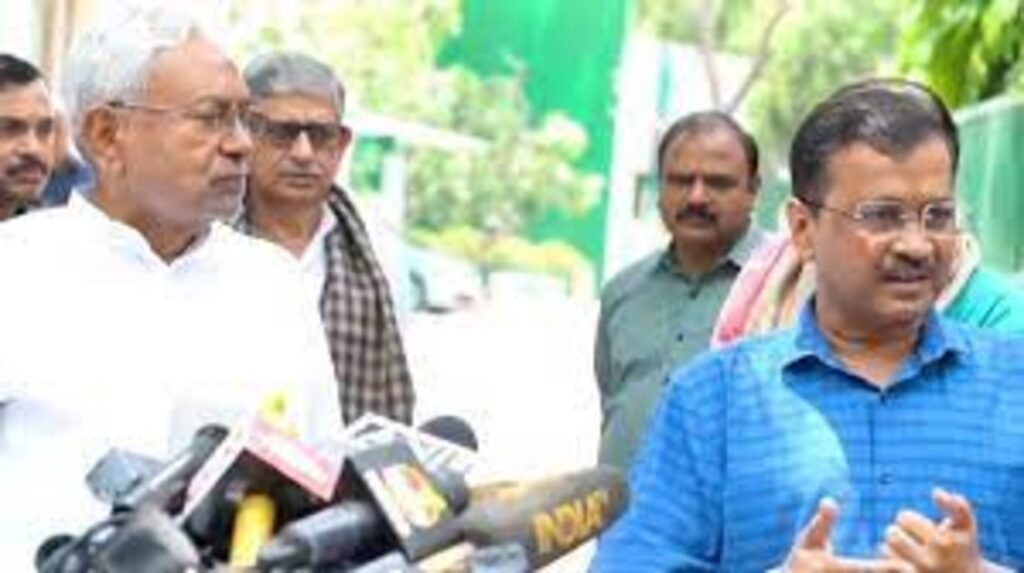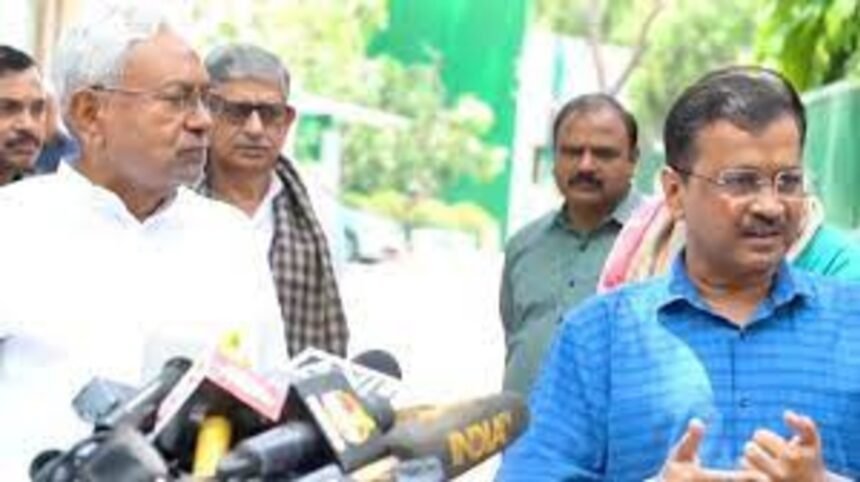Introduction
In a strategic move that could potentially impact the dynamics of the Opposition alliance ahead of the 2024 Lok Sabha elections, the Aam Aadmi Party (AAP) has revealed its intention to contest the upcoming Assembly elections in Bihar. Led by Arvind Kejriwal, the AAP aims to strengthen its presence in the state by building a robust grassroots organization.

The announcement was made by AAP general secretary Sandeep Pathak, who emphasized the importance of establishing a strong organizational structure before contesting elections in Bihar. Pathak highlighted that the party’s foray into Bihar will follow a similar approach to its entry into Gujarat, where it first engaged in local body polls to establish a foothold.
Pathak’s statement resonated with the party’s vision to rejuvenate Bihar’s political landscape, asserting that the state’s progress had been hindered by divisive politics. He urged party leaders to focus on forming committees in every village to enhance the party’s reach.
IMAPCT ON I.N.D.I.A
While this move may impact the ongoing efforts of the Indian National Developmental Inclusive Alliance (INDIA) – a coalition of 26 opposition parties including AAP – Pathak iterated that AAP’s commitment to the country’s welfare remains a priority. He stressed that AAP is a national party and will indeed contest the upcoming Lok Sabha polls.
Reacting to AAP’s decision, BJP leader Syed Shahnawaz Hussain expressed confidence that the National Democratic Alliance (NDA) would still secure victory in Bihar. Meanwhile, representatives from Rashtriya Janta Dal (RJD) and Janata Dal United (JDU) responded with varying perspectives. RJD MP Manoj Jha suggested that AAP would adhere to the principles set by the INDIA alliance when the foundation was laid, while JDU leader Neeraj Kumar acknowledged AAP’s right to expand but affirmed the commitment of the INDIA alliance to resolve any internal differences.
The timing of AAP’s entry into Bihar also raises questions about the cohesion of the INDIA alliance, which was formed to challenge the NDA’s dominance in the upcoming Lok Sabha elections. The alliance aims to unite opposition parties and prevent the NDA from securing a third consecutive term under Prime Minister Modi’s leadership.
Conclusion
In a broader context, AAP’s move to expand its footprint in Bihar introduces another layer of complexity to the intricate game of electoral politics, potentially influencing the strategies and alliances formed by various political parties in the lead-up to the crucial 2024 Lok Sabha elections. As parties navigate these developments, the political landscape in India continues to evolve, shaping the nation’s future trajectory.




